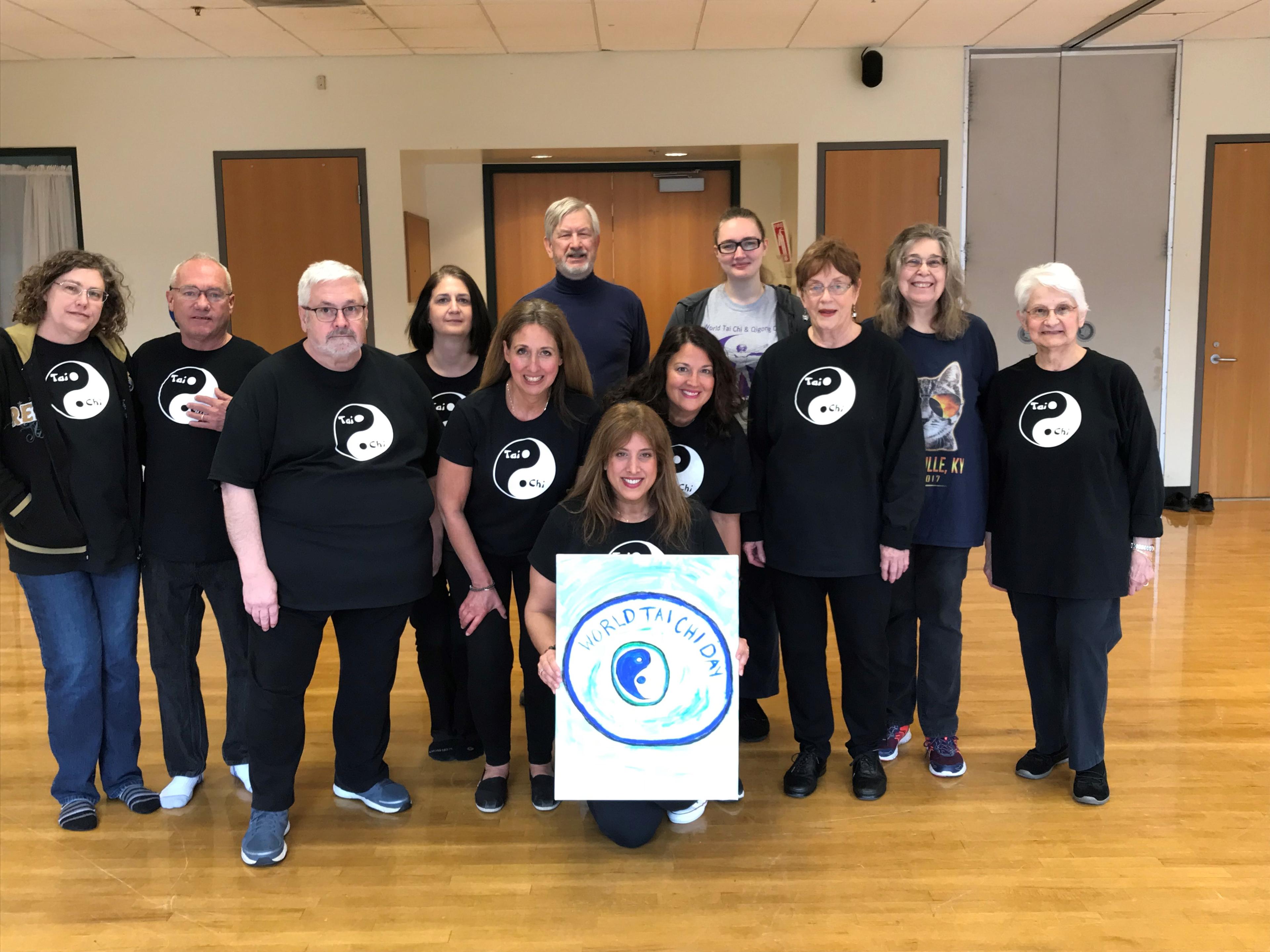Find Your Fit: Qigong’s Low-Impact, Full-Body Movements and Mindfulness Techniques Can Benefit Older Adults
Jake Newby
| 4 min read

Anyone aware of the slow, gentle movements of tai chi might be surprised to know that it is considered a form of an even gentler, lesser-known Chinese exercise developed thousands of years ago, known as qigong.
Qigong is part mindful activity, part exercise. Featuring aerobic and strength components, qigong coordinates body posture, breathing and meditation. It involves fewer complex body movements than tai chi.
“The main thing I see about qigong is that it’s a lot easier for seniors to do because it is repetitive,” said Mary Ann Kashef, a certified Tai Chi and Qigong instructor based in Huntington Woods. “We do the same posture over and over and then we go to another posture. With tai chi we’re gracefully moving from one posture to the next.”
How do you perform qigong?
Qigong helps regulate the mind, breath, the body’s movement and posture. According to the National Center for Complementary and Integrative Health (NCCIH), most forms of qigong involve:
- Slow, long deep breaths and breath patterns that switch from abdominal breathing to breathing that incorporates speech sounds.
- Movements that are typically gentle, smooth and aimed at relaxation.
- Mind regulation that includes focusing one’s attention and visualization.
Qigong is commonly classified into two categories:
- Dynamic (active) qigong: Dynamic techniques primarily focus on slow flowing, whole-body movements that incorporate the arms and legs.
- Meditative (passive) qigong: Meditative techniques can be practiced in any still posture that can be maintained over time. They feature inner movement of the breath and mind exercises, with little to no body movement.
What are the benefits of qigong?
Qigong is designed to stretch the ligaments and tendons, warm up the muscles up and immobilize the joints. It also promotes circulation of bodily fluids, like the blood, the synovial fluid and the lymph.
“It’s like a warmup for your tai chi,” Kashef said. “Because like I said, it’s stationary most of the time, so you’re not stepping. You can focus more on the center of your body instead of shifting back and forth.”
Qigong presents a low-impact way for older adults with limited mobility to increase their flexibility, improve balance and alleviate tensions in the muscles. Qigong may have mental health benefits, according to some studies, though researchers acknowledge that more research is needed to determine the scope of qigong’s ability to reduce anxiety and depressive symptoms.
“Qigong movements are easy for seniors because once they shift their body weight from one leg to the next – which is typical during tai chi – they may find it difficult to bear so much weight on either leg,” Kashef said. “Qigong is more focused on centering the body in a 50/50 stance. It builds your center. It stimulates your spine.”
Qigong has been shown to have positive effects on bone and cardiovascular health, in addition to its flexibility and balance benefits.
Recent research has also touted qigong’s fatigue-reducing abilities. A 2023 study published in the Integrative Cancer Therapies Journal researched cancer patients who practiced qigong for 10 weeks. The results showed clinically significant improvements in fatigue. Other smaller studies have concluded qigong to be beneficial in improving fatigue in patients with various diseases.
A 2019 survey, according to the NCCIH, found sufficient evidence to support qigong for balance training and fall prevention. When compared to more traditional interventions, qigong was found to have similar and sometimes better effects.
What to know before trying qigong for the first time
Kashef advises qigong newcomers to first speak with their health care provider to make sure it’s safe for them. Once they get the OK, she has some beginner tips.
“I do recommend that you wear loose clothing. Not tight clothing like yoga pants or tight shirts,” Kashef went on. “Your lymph is right under the skin, so, tight clothing can restrict the lymph’s ability to get moving and to get good circulation. I do suggest loose-fitting clothes.”
Secondly, wearing running shoes while performing qigong is a no-no, according to Kashef.
“You can really hurt your ankles,” she added. “You are stimulating your heel. You start with the heel when you walk, so it’s better to have a flat foot, if not barefoot.”
In her nearly 20 years of qigong instructing, Kashef has received a lot of positive feedback about how much lighter the qigong movements make them feel.
“I’ve had students tell me the pain and stiffness – especially in their shoulders, because there’s so much shoulder work – has felt so much better,” Kashef said. “That they don’t want to miss class because of the qigong and the tai chi loosening up the stiffness in their body and giving them better balance.”
Find Your Fit:
Photo credit: Courtesy of Mary Ann Kashef





